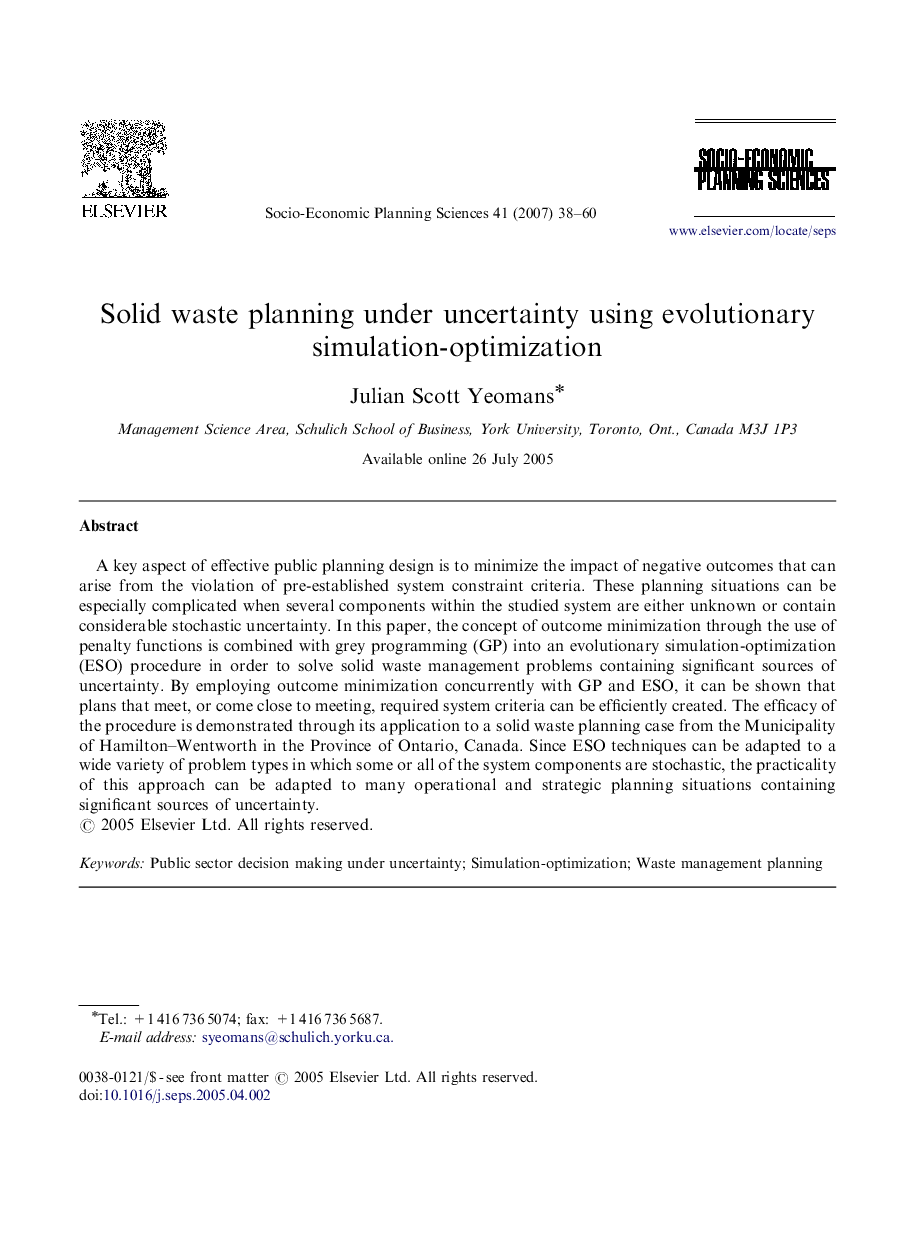| Article ID | Journal | Published Year | Pages | File Type |
|---|---|---|---|---|
| 987666 | Socio-Economic Planning Sciences | 2007 | 23 Pages |
A key aspect of effective public planning design is to minimize the impact of negative outcomes that can arise from the violation of pre-established system constraint criteria. These planning situations can be especially complicated when several components within the studied system are either unknown or contain considerable stochastic uncertainty. In this paper, the concept of outcome minimization through the use of penalty functions is combined with grey programming (GP) into an evolutionary simulation-optimization (ESO) procedure in order to solve solid waste management problems containing significant sources of uncertainty. By employing outcome minimization concurrently with GP and ESO, it can be shown that plans that meet, or come close to meeting, required system criteria can be efficiently created. The efficacy of the procedure is demonstrated through its application to a solid waste planning case from the Municipality of Hamilton–Wentworth in the Province of Ontario, Canada. Since ESO techniques can be adapted to a wide variety of problem types in which some or all of the system components are stochastic, the practicality of this approach can be adapted to many operational and strategic planning situations containing significant sources of uncertainty.
